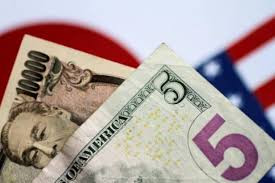With the current state of Asian shares coupled with the yuan getting affected by the trade dispute, investors are gravitating towards traditional and safe investments like bonds, gold, and the yen.
This lifted the value of the yen, a normal occurrence during a time of stress because Japan is regarded as the world's largest creditor. The dollar is on a seven-month low of 105.78 yen.
Investors gravitating towards the Japanese yen is highly attributed to the high amount of goods it exports than its imports. This resulted in decades of account surpluses putting Japan as the world's net creditor for the last 25 years.
Likewise, the foreign assets of Japanese investors overseas are higher than those assets owned by foreign investors in Japan. Called "net foreign assets," this gave Japan 339 trillion yen at the end of 2015.
So, when markets become jittery, money goes back home.
This makes Japan intervene quickly when there's a threat to dry up their currency because of issues in overseas economies as this will hurt the country's export competitiveness.
Yoshiki Takeuchi, Japan's vice finance minister for international affairs said, "Excessive volatility is negative to the economy."
Wall Street giant Goldman Sachs Group Inc. sees the yen hitting a three-year high, in three months, of 103 per dollar.
A stronger yen will also derail the Bank of Japan's target of a 2 percent inflation.
Noting that Tokyo is in constant communication with overseas authorities with regards to volatile market moves, Japan's top diplomat said that it's important to act "based on the G7 and G20 agreement."
He made this statement after the meeting for market developments with top officials from the Bank of Japan, Financial Services Agency and the Ministry of Finance
That meeting concluded the current state in U.S. monetary policy and the China-U.S. trade tensions as causing the moves in the market, Takeuchi added.
It was able to confirm that "the global and the Japanese economies" are "in a stable situation," he said.
Japan will keep to the G7/G20 agreement against competitive devaluation wherein they will promote market-oriented exchange rates and use monetary policy for domestic objectives without targeting any currency.
Last time Tokyo intervened in a yen surge was in 2011 in the wake of the Fukushima nuclear disaster.






